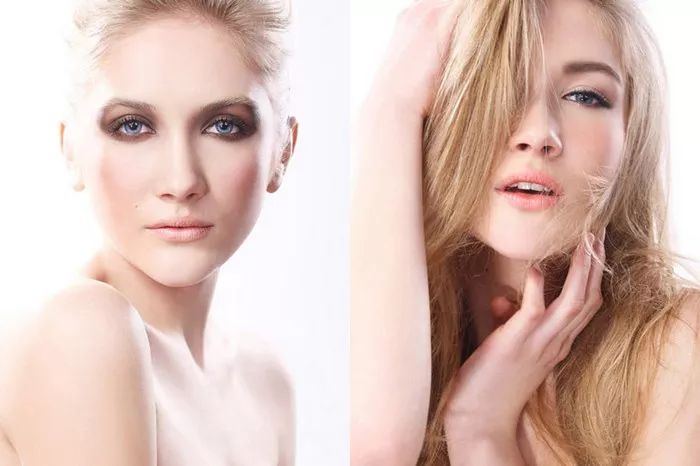When it comes to achieving luscious, vibrant locks, many people are eager to explore the role that vitamins play in promoting hair growth. The quest for a thick and healthy mane has led individuals to scrutinize their diets and consider various supplements. In this comprehensive guide, we will delve into the world of vitamins and their impact on hair growth, exploring the science behind each essential nutrient.
Vitamin A: The Foundation for Healthy Hair
Vitamin A is a fat-soluble vitamin that plays a crucial role in maintaining the health of the skin and mucous membranes. It is also instrumental in promoting hair growth. One of its key functions is aiding in the production of sebum, an oily substance that moisturizes the scalp and keeps hair strands healthy.
However, it’s important to strike a balance when it comes to vitamin A intake. While a deficiency can lead to dry, flaky scalp and hair loss, excessive consumption can have adverse effects. Finding the right balance through a well-rounded diet or supplements is essential for harnessing the benefits of vitamin A for hair growth.
Vitamins B: The Hair Growth Powerhouse
The B-vitamin complex, consisting of various B vitamins such as Biotin (B7), Niacin (B3), Pantothenic Acid (B5), and others, is often hailed as a powerhouse for promoting hair growth. These vitamins contribute to the production of red blood cells, which carry oxygen and nutrients to the scalp and hair follicles.
Biotin, in particular, is renowned for its role in maintaining healthy hair, skin, and nails. While it is commonly found in foods like eggs, nuts, and leafy greens, some individuals may opt for biotin supplements to ensure an adequate intake. Understanding the specific benefits of each B vitamin is crucial for tailoring a nutritional approach to support optimal hair growth.
Vitamin C: Collagen Production for Stronger Hair
Vitamin C is not only celebrated for its immune-boosting properties but also for its role in collagen synthesis. Collagen is a protein that provides structure to the hair, skin, and nails. Ensuring an ample supply of vitamin C aids in collagen production, contributing to stronger and more resilient hair.
Additionally, vitamin C is an antioxidant that helps protect hair follicles from damage caused by free radicals. By incorporating vitamin C-rich foods into your diet or opting for supplements, you can fortify your hair against environmental stressors and promote overall hair health.
Vitamin D: Shedding Light on Hair Growth
Vitamin D, often referred to as the “sunshine vitamin,” is crucial for the absorption of calcium and phosphorus in the body. While its primary role is in bone health, emerging research suggests a link between vitamin D deficiency and hair loss.
Studies have indicated that individuals with alopecia, a condition characterized by hair loss, often have lower levels of vitamin D. Ensuring adequate exposure to sunlight, incorporating vitamin D-rich foods, or considering supplements may contribute to maintaining optimal vitamin D levels and supporting healthy hair growth.
Vitamin E: Nourishing the Scalp
Vitamin E is renowned for its antioxidant properties, which play a vital role in protecting the scalp and hair follicles from oxidative stress. Oxidative stress can lead to damage to the hair follicles, hindering the normal growth cycle.
In addition to its antioxidant effects, vitamin E promotes a healthy scalp by improving blood circulation. This increased blood flow ensures that essential nutrients reach the hair follicles, fostering an environment conducive to robust hair growth. Including vitamin E-rich foods in your diet or opting for supplements can contribute to maintaining a healthy scalp.
Iron: The Oxygen Carrier for Hair Follicles
Iron is a mineral that plays a crucial role in carrying oxygen to cells throughout the body. When it comes to hair growth, adequate iron levels are essential for the proper functioning of hair follicles. Iron deficiency can lead to anemia, a condition that may contribute to hair loss.
Ensuring an ample supply of iron through a balanced diet or supplements is vital for preventing hair thinning and promoting overall hair health. Understanding the types of iron available in food and optimizing absorption can further enhance the effectiveness of this essential mineral in supporting hair growth.
Zinc: Balancing Hormones for Healthy Hair
Zinc is a trace mineral that plays a pivotal role in various bodily functions, including hormone regulation. Hormonal imbalances can contribute to hair loss, making zinc an essential nutrient for maintaining healthy hair.
Zinc supports the production of sebum, the oily substance that moisturizes the scalp and prevents hair from becoming dry and brittle. Including zinc-rich foods in your diet or considering supplements can contribute to hormonal balance and support optimal hair growth.
In conclusion, creating a personalized approach to vitamin intake, whether through dietary adjustments or supplements, requires a holistic understanding of individual needs and potential deficiencies. Striking a balance and ensuring an adequate supply of essential vitamins and minerals can contribute to maintaining a healthy scalp, strong hair follicles, and vibrant locks.
Embark on your journey to unlock the secrets of hair growth by harnessing the power of vitamins – the building blocks for the luscious mane you’ve always desired.
[inline_related_posts title=”You Might Be Interested In” title_align=”left” style=”list” number=”6″ align=”none” ids=”5439,3952,3251″ by=”categories” orderby=”rand” order=”DESC” hide_thumb=”no” thumb_right=”no” views=”no” date=”yes” grid_columns=”2″ post_type=”” tax=””]

































